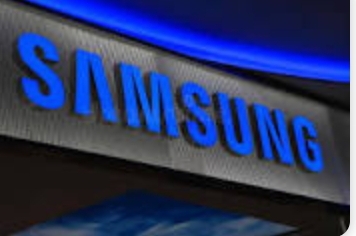Federal court approves settlement between Australia’s competition watchdog and tech company over phones marketed as water-resistant
Technical company Samsung accept to pay $14m penalty for misleading Galaxy ads


Samsung has agreed to pay a $14m penalty for misleading claims that seven of its Galaxy phones were water-resistant when the devices could stop working after being used in swimming pools or ocean water.
Justice Michael Murphy approved the settlement between the tech company and the Australian competition and consumer commission (ACCC) in the longrunning case launched in 2019, over ads related to seven Galaxy phone models.
The competition watchdog had alleged Samsung misled and deceived customers with its claims about phones across more than 300 advertisements since February 2016. In court on Thursday, the barrister for Samsung, Nicholas De Young, said the full calculation of advertisements affected came to 684.
The ads online, TV, and on billboards showed the phones being water-resistant and being used at pools and beaches, despite the phones not being suitable for use in pool water or salt water
The agreed settlement is for a much smaller set of ads. Samsung has agreed as part of the settlement of the case that nine ads for seven devices that were promoted over two and a half years between 2016 and 2018 were misleading.
The company has admitted that if the devices were used in salt water or pools, there was “a material prospect of damage by corrosion to the charging port of the phone”, the barrister for the ACCC, Caryn Van Procter, told the court.
During that time, Samsung sold 3m of the Galaxy phone models included in the agreement in Australia.
The problem would arise when people went to charge their phone while it still had water in the charging port, despite a warning popping up on the phone advising the user against charging it. Samsung has since fixed this issue with hardware and software changes in later models of the Galaxy phone, the court heard.
While there was some information provided to the court on the number of views the Facebook and Twitter ads received – in the hundreds of thousands of views each – the court heard there was no way to know how many consumers bought the devices off the back of the ads, nor how many had subsequently had a fault with the phone as a result of using it in pool or ocean water and then charging it.
Murphy said, in agreeing to the $14m settlement, that many consumers would have used their phones in the way represented in the ads, relying on those representations.
He said $14m would act as a deterrent and was a “real and sufficient sting” at 14% of Samsung Australia’s profit over the last six years. He also criticised the phone maker for only cooperating to resolve the matter recently after years of opposition to the ACCC’s case.
He criticised how products are often marketed in Australia, saying too often the federal court sees cases brought before it where products are oversold to consumers in marketing campaigns.
Samsung was ordered to pay $14m plus a $200,000 contribution to the ACCC’s costs within 30 days of the order.
The chair of the ACCC, Gina Cass-Gottlieb, welcomed the ruling.
“Samsung Australia’s ads promoting its Galaxy phones featured people using their phones in pools and sea water, despite the fact that this could ultimately result in significant damage to the phone,” Cass-Gottlieb said.
This penalty is a strong reminder to businesses that all product claims must be substantiated. The ACCC will continue to take enforcement action against businesses that mislead consumers with claims about the nature or benefits of their products.”
A spokesperson for Samsung said the company had extensively tested the products with both sea and pool water, but welcomed bringing the case to a close.
“Samsung endeavours to deliver the best possible experience to all its customers. Samsung regrets if any Galaxy users have experienced an issue with their device as a result of the matters covered by this case.”
The Samsung devices included in the settlement are the Galaxy S7, S7 Edge, A5, A7, S8, S8 Plus and Note8 phones.

 বাংলা
বাংলা  Spanish
Spanish  Arabic
Arabic  French
French  Chinese
Chinese 
